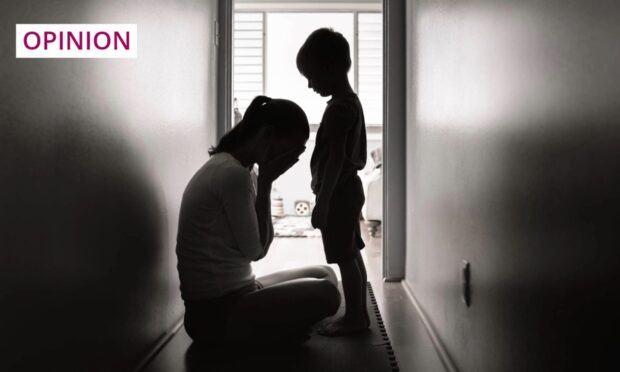“January blues” might be long gone, but with the days still short and cold, it’s not unusual for people to struggle with their mental health during the first few months of the year – and that is no different for children.
Any pressure that parents and carers are under can also have an impact on a child’s mental health.
In addition to this, we know from calls to the Childline base in Aberdeen that issues such as the cost of living and global conflicts also have an impact on children’s mental health. They may seem like concerns for adults, but young people are intuitive and can pick up on cues that something is worrying their parents or carers.
That’s why events such as the recent Children’s Mental Health Week, organised by charity Place2Be, are so important. The campaign sees professionals seek to increase public awareness of the mental health pressures young people live with.
It launched in 2015, and works to empower and give every child in the country a voice. Hundreds of schools, children, parents and carers up and down the UK take part. The goal is to ensure that no child has to face a mental health problem alone.
With cold starts and short days, January can feel difficult.
Knowing how to spot when a child or young person is struggling can help make sure they get the support they need 💚 pic.twitter.com/U3Eekq0sWi
— NSPCC (@NSPCC) January 14, 2024
As part of the campaign, free resources encourage children to express themselves and partake in mindfulness activities. The Childline website also has areas like the Calm Zone and Toolbox, which offer practical tips and help to manage well-being, including creative ideas, games and videos.
We know how vital measures like these are from our work supporting young people at NSPCC Scotland and our Aberdeen Childline base. Good mental health is vital if a child is to thrive and enjoy their adolescence. Poor mental well-being can impact all aspects of their life, such as education, relationships and physical health.
Regular, open and honest conversations
Our advice to parents and carers is applicable throughout the year, not just during the dark winter months.
Have regular open and honest conversations with your child about how they are feeling. Be curious and ask them what is on their mind.
In order to ensure these talks are as effective as possible, it is important that they happen regularly. That way, the discussion will feel more natural, increasing the likelihood of your child opening up and sharing how they are really feeling.
The more common and natural these conversations are, the more it should hopefully help your child feel that you are there to support them
It can also help if these chats are informal and fit into everyday activities: over a meal, during an advert break on TV, or when walking to and from school. The more common and natural these conversations are, the more it should hopefully help your child feel that you are there to support them, and that they can trust or confide in you if there is something upsetting them.
But, if they find it difficult to open up to someone they know, our Childline counsellors are available 24 hours a day, seven days a week. Be it over the phone or through our online chat function, advice and support is available.
Step away from the online world
The Childline website also has a lot of advice and support, including moderated message boards, where children can talk to other young people about anything that may be bothering them. Plus, there are mindfulness exercises, art tools and much more for them to explore and see what works for them available on the Childline website.
Another important and timely tip for supporting your child’s mental well-being is ensuring that they are taking some time away from the online world. Stepping away from digital devices is important in order to alleviate pressure and stress – it may also encourage your child to stay active, which always works as a mood-booster.
Exercise can go a long way towards brightening up someone’s day, and making a positive impact on their physical and mental health.
As always, there’s more advice, information and support for parents at nspcc.org.uk.
Jane Craik has volunteered with Childline Aberdeen for around three years


Conversation